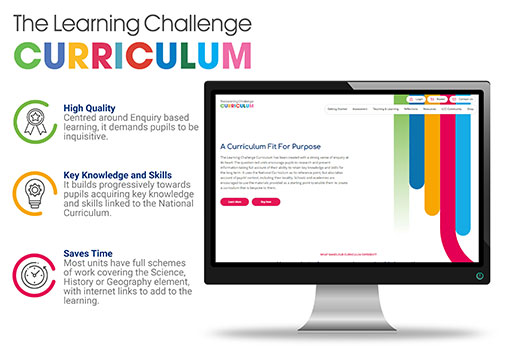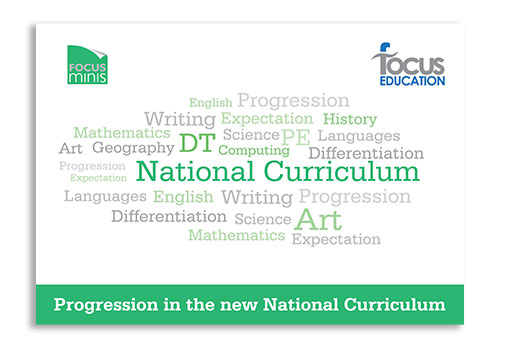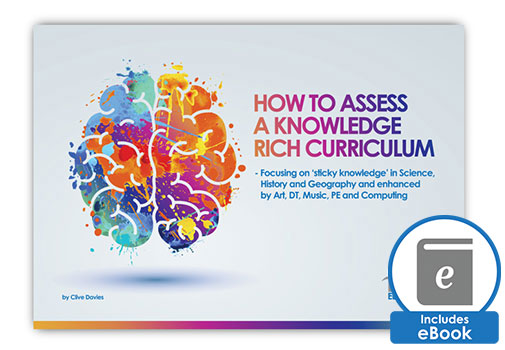
How can schools ensure a broad and balanced curriculum in a high-pressured test result system? Are we applying a broad and balanced curriculum in our schools despite SATs and GCSEs? Thoughts from a shed.
We have three children. And through a lack of foresight in family planning, at the time of writing, they happen to be 11, 16 and 18 years old respectively.
So this means that they are all have some form of test or exam during the same term; namely this one.
That I why I am writing this in the shed. Because the house is a den of revision driven angst and manic cries of, “Who’s moved my books/ laptop lead/ revision timetable/ tie/ school bag…?”
It also gives me a perspective on youngsters reaching the end of key stages. The latest curriculum (and I wonder how long this one will last after the forthcoming election, but that’s another story) is all based on end of key stage expectations and the requirement that pupils get there, or else…
The thing is, we’re fortunate that all our three children have been through really effective schools, and Ofsted in their wisdom have agreed with this and given the schools high grades over time. But I have a niggling doubt that any of our three youngsters are actually reaching the end of key stage expectations in all subjects as set out in the curriculum. And that is despite the fact that this curriculum, at primary at least, came with the promise that there was less content and that learning at depth was key across all subjects.
Take our youngest. I could add a pause and then add ‘please’ to that statement in an update to the old misogynistic male comedian line about their wife, but I wouldn’t stoop that low.
And no-one would want our youngest anyway. Honestly, she is feral. Anyone remember the child character who turns out to be the narrator in the original Mad Max 2 film? Well, that’s her on a good day.
But I digress.
Year 6 SATs and the curriculum
The point is that her Year 6 SATs are fast approaching. And I know that for these SATs, she is learning English and maths, English and maths and then a bit more English and maths with a few PE lessons in between, because we’ve had some nice weather.
The school is great, she is happy (we know this because there’s normally a smile lurking under the mud and leaves when she comes home) but there’s no way she’s going to meet the end of key stage expectations in every one of the foundation subjects. And this is a ‘Good’ school that we, as parents, are very happy with too.
I was working in a school in the Spring term and a group of Year 6 children told me they weren’t doing any art, DT or music this year until the Year 6 SATs were out of the way. It was English and maths for a minimum of three sessions out of four every day for two terms, plus a bit of map work and a short unit on the Vikings with plenty of writing.
It’s worrying that they were so well aware of the restricted curriculum there were experiencing, due to the SATs and the high pressure to get excellent results.
The curriculum in Key Stage 3 and beyond.
Beyond Key Stage 2 I have limited professional experience, but both our older children will say things like, “The teacher said not to revise that bit because it never comes up in the exams” or “I need to put lots of (insert subject content) in this course work because it gets you X marks.”
So no ‘teaching to the test’ going on there then…
The DfE and the Curriulum
I know the DfE say that schools should be providing a broad and balanced curriculum, but in the real world, the pressure of test results at any key stage are just so strong for school leaders. No wonder so many children are on some form of restricted curricular diet.
It would also be helpful if the DfE would sometimes actually acknowledge some responsibility when systems aren’t perfect. You could have a scenario where a mass of credible research proves that every single school building in the country is collapsing; all teachers are leaving the profession by next Wednesday and each and every school leader is off work with long term stress.
And in the face of this perfect storm an anonymous DfE spokesperson for whichever party are in power would respond with something like, “We dispute these ill-thought out findings and repeat that school buildings are all perfectly formed temples to the educational process of our young people, all schools have mile long queues of would-be teachers waiting impatiently outside and school leadership is the easiest job in the world, nay universe, thanks to our brilliant initiatives and long term investment. Any slight remaining problems are not our fault, but those of our predecessors in government. We however are great and beyond reproach. No questions thank you.” If you don’t believe me, just read the next education news story on the BBC or similar website and see how the DfE responds to every issue.
But I digress again.
Considering your Curriculum
I would invite you to consider the curriculum offer in your settings. What are school leaders and teachers doing to balance the desire for our children to experience a broad, balanced, meaningful curriculum, with the demands of high pressure test results in a narrow range of subjects and content?
Many primary settings have been innovative in their timetabling and use of cross-curricular links. I have also seen an increase in the use of subject specialist teachers, especially in KS2 classes. This ranges from borrowing KS3 staff from the local secondary school, to teachers in parallel classes swapping their classes to utilise their subject specialist skills to challenge the children and ensure coverage – Mr Smith teaches music and art to both Y5 classes whilst Mrs Brown teaches them PE and DT.
When the dust settles after the SATs, perhaps senior leaders could have a meeting with the subject leaders and teachers and review the curriculum again. Are children really meeting the end of key stage expectations in all subjects? What works well within your curriculum, is anything missing and what can be improved?
Get in Touch
I have limited phone signal and Wifi out here in the shed, but once I emerge after the exam season and the household has calmed down, I’d be interested to hear your thoughts and ideas regarding the curriculum. I’m normally fairly approachable during breaks on training courses across the country once I’ve had a biscuit. You can also connect with me via Twitter @Focustn or contact the Focus Education office on 01457 821 818.
Related Products
Tim has been a headteacher with a successful track record; his last school had a reputation for innovation and their initiatives have been utilised by others and presented internationally.
School improvement has been at the heart of his career, working as an LLE, a School Improvement Partner, Professional Partner as well as an Ofsted inspector and mentor for trainee inspectors.









